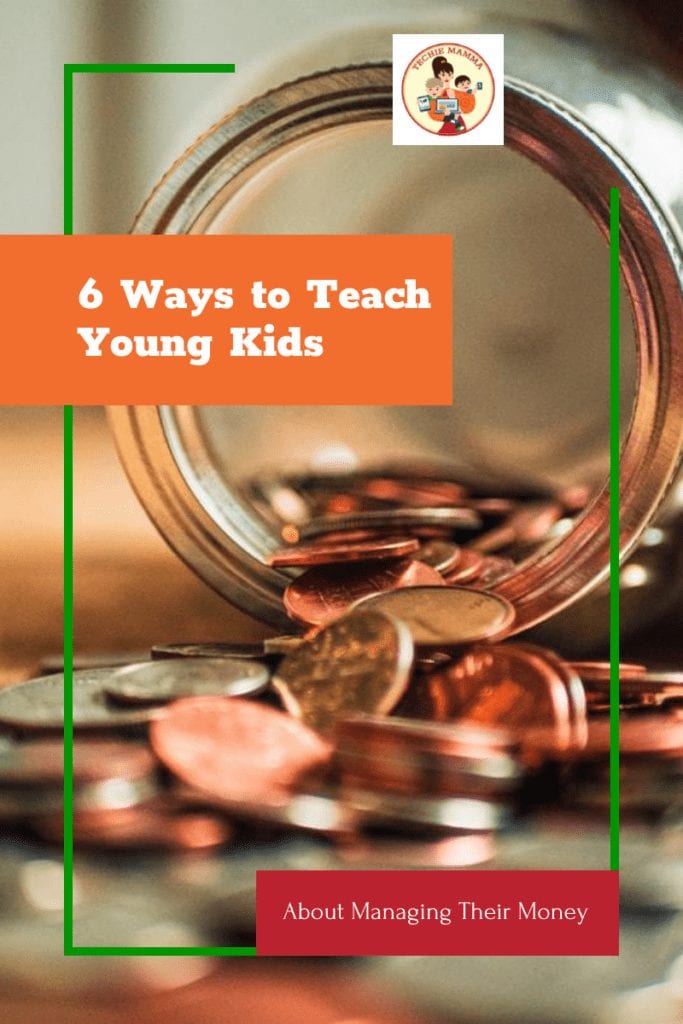
As one who did not always manage money in the best possible way, I am super aware that I want my boys to do better. These six tips are great to get started at a young age, even with my 4 year old.
Techie Mamma
We all want our kids to grow up to be responsible adults who know how to manage their money. The best way to ensure this happens is by teaching them good financial habits in childhood.
But according to one survey, one in four adults say their parents never taught them about money when they were growing up. It’s not enough to just give your kids an allowance; you also need to teach them how to manage it.
Here are six ways you can teach young kids about money management.
1. Give young children tangible examples
You’ll want to start by introducing children to the concept of money, and by explaining where money comes from. But this can be a little hard for young children to understand, so it can help to provide tangible examples.
Give young children a clear piggy bank and encourage them to start saving their coins and dollars. As the weeks and months go by, point out how their money is growing because they’ve been saving.
Once they have enough money saved up, let them take some of the money out of the piggy bank. They can bring the money to the store with them, and spend the money on the item of their choice.
2. Encourage young children to give
It’s important to teach children the principle of saving, spending, and giving. Even very young children can start saving some of their money for the purpose of giving it to a charitable organization.
This is a great way to teach children that their money can be used to help other people. It can also allow you to have more meaningful conversations with your kids about the different purposes of money.
3. Help kids understand budgeting
Many people have a stigma regarding money, and feel that it’s impolite to talk to their kids about financial matters. But including your kids in family budget meetings is one of the best ways to teach them responsible money management skills.
You don’t have to disclose all of your financial information to your kids, but figure out what you feel comfortable sharing. Use an online budgeting app or spreadsheet, and talk about your plan for the month.
This will give your kids a better understanding of what’s involved in managing a home, and how to make decisions regarding spending and saving. Once they’re old enough, teach them how to set up their own budget.
4. Set a good money management example
The best way to teach your children how to manage their money is by setting a good example. Young kids are very observant, and they naturally want to emulate your behavior.
When you’re out shopping with your kids, avoid making impulse purchases, and explain the difference between wants and needs. When they ask to spend their own money, encourage them to wait at least a day to decide if they really want to buy that item.
5. Help them open their own bank account
Once kids are old enough, take them to open their own checking and savings account. This will provide a good introduction to managing their money and teach them about financial responsibility. They can even start out with some money in their account by picking one that is offering promotions to open an account with them.
Explain that a checking account is about spending money, whereas a savings account is for saving money for the future. Show them how they can log in to their accounts online, and review their monthly bank statements with them.
6. Allow your kids to make mistakes
And finally, allow your kids to make mistakes with their money. It’s okay if they spend all of their savings, or overdraw their checking account.
These are valuable learning opportunities, and it’s better for them to happen under your roof while you can still guide them toward better choices. Have patience with your kids, and be ready to offer them guidance when they need it.




 BY TECHIE MAMMA
BY TECHIE MAMMA